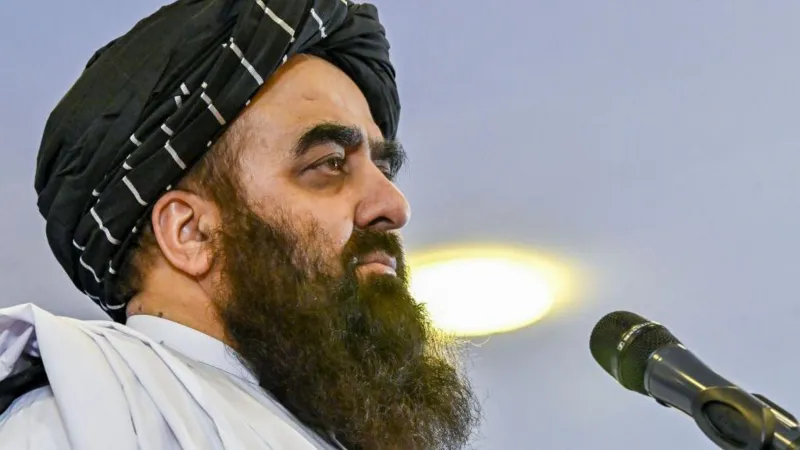Russia has formally recognised the Taliban government in Afghanistan, becoming the first nation to do so since the militant group seized power in August 2021. The move, announced on Thursday, has ignited strong criticism from Afghan opposition figures and international human rights groups.

A Landmark Moment for the Taliban
Afghanistan’s Foreign Minister, Amir Khan Muttaqi, hailed Russia’s decision as a “courageous” step that ushers in a “new phase of positive relations, mutual respect, and constructive engagement.” He expressed hope that Moscow’s recognition would encourage other nations to follow suit, despite widespread global hesitancy due to the Taliban’s strict interpretation of Sharia law and their severe restrictions on women and girls.
Widespread Condemnation
However, the announcement was met with sharp backlash. Former Afghan lawmaker Fawzia Koofi condemned the recognition, warning that it “legitimises impunity” and could threaten not only Afghan citizens but global security.
The Afghan Women’s Political Participation Network also criticised the move, stating that it endorses “a regime that is authoritarian, anti-women, and actively dismantling basic civil rights.”

Since retaking control, the Taliban have barred girls over 12 from attending school, restricted most employment for women, imposed travel limitations requiring male chaperones, and banned women from speaking publicly in some settings. The Taliban insist they uphold women’s rights in line with their interpretation of Islamic law and Afghan culture.
Economic and Diplomatic Interests
Russia’s foreign ministry framed the recognition as part of a broader strategy to deepen economic ties, citing potential cooperation in energy, agriculture, transportation, and infrastructure. Moscow also pledged continued support to combat terrorism and drug trafficking in the region.
Notably, Russia maintained its diplomatic presence in Kabul even as most nations shuttered their embassies in 2021. In 2022, it became the first country to sign an international trade agreement with the Taliban, involving oil, gas, and wheat supplies. Earlier this year, Russia also removed the Taliban from its official list of terrorist organisations.

Historical Context and Ongoing Tensions
Despite recent overtures, Afghanistan and Russia share a turbulent history. The Soviet Union’s invasion of Afghanistan in 1979 led to a protracted conflict that resulted in the deaths of around 15,000 Soviet troops and ended with a humiliating withdrawal in 1989.
Recalling this, the Afghan Women’s Political Participation Network noted, “Russia’s current political interference and support for the Taliban represent a continuation of the same destructive strategies, now under the banner of diplomacy.”
Dr. Rangin Dadfar Spanta, a former Afghan national security adviser, described Russia’s recognition as “regrettable” and cautioned that “in the absence of widespread resistance, others will follow.”
International Response and Human Rights Concerns
The United Nations and Western governments have condemned the Taliban’s governance, with the UN declaring their treatment of women a form of “gender apartheid.” Human rights agencies continue to report public floggings, extrajudicial killings, and widespread violations under Taliban rule. In 2021, the UN Security Council froze approximately \$9 billion of Afghanistan’s foreign assets in response to the Taliban takeover.
Despite this, some European nations are reconsidering their approach. In Germany, Interior Minister Alexander Dobrindt called for direct agreements with the Taliban to resume the deportation of convicted Afghan criminals—something previously halted after the regime change.
A UN Human Rights Office spokesperson, however, stated on Friday that returning people to Afghanistan is “not appropriate” given the ongoing human rights violations.

Remaining Diplomatic Channels
While most countries severed formal ties with Afghanistan after 2021, a few—namely China, the United Arab Emirates, Uzbekistan, and Pakistan—have appointed ambassadors to Kabul, signalling limited engagement with the Taliban regime.
As Russia leads the way in official recognition, the international community now faces renewed questions about whether, and how, to engage with a government widely criticised for its human rights record.




